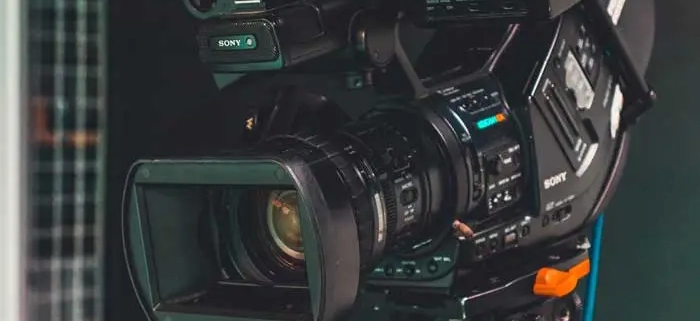The Importance of Rugby Video and Game Analyst Specialists
The importance of video and game analyst specialists has grown in the fast-paced world of rugby, where split-second choices and tactical moves can make or break a game. These experts offer a distinct skill set and analyse every facet of a game using cutting-edge data analysis methods. These experts are crucial to the success of a rugby team, analysing everything from player performances to the nuances of rival teams’ tactics. This piece delves into the complex field of rugby analysis, examining the vital role these experts play in improving team results and encouraging a more in-depth comprehension of the sport.
Key Takeaways
- Experts in rugby video and game analysis are essential in analysing player performances and figuring out team tactics.
- The development of video analysis has changed how teams train for games by supplying a wealth of information beyond conventional statistics.
- Analysis has an impact on training plans and the creation of strategic game plans in addition to the field of play.
- Specialists play a crucial role in professional rugby’s elite league, helping players maintain a competitive advantage and produce consistently excellent performances.
The Evolution of Rugby Analysis
Early Days of Rugby Analysis
Rugby’s early years saw a primitive form of analysis. To form their understanding of the game, coaches and players depended on personal experiences, anecdotal evidence, and fundamental statistics. But as the sport developed, so did the requirement for a more advanced method of analysis.
Introduction of Video Analysis
The development of video technology marked a turning point. The way teams prepared was completely changed by the ability to record and analyse match footage. Coaches and players suddenly had access to a wealth of information beyond what was visible to the unaided eye. In this sense, 1995 rugby of the Rugby World Cup was a major turning point. Teams started analysing plays and finding patterns that were invisible during live action by using video analysis to obtain a competitive advantage.
The Role of Video and Game Analyst Specialists
Analysing Player Performances
Examining each player’s performance in great detail is one of a rugby video analyst’s main duties. Analysts can pinpoint a player’s strengths, weaknesses, and playing patterns by carefully examining game footage. With this fine degree of detail, coaching interventions can be more focused, assisting players in honing their abilities and improving their overall on-field performance.
Unravelling Team Strategies
Experts in game analysis concentrate on the larger picture of team dynamics rather than just individual performances. They break down the tactical components of a game plan, looking at how teams carry out predetermined plays, react to particular circumstances, and adjust to their opponents’ tactics. Beyond the obvious, this thorough analysis offers coaches insightful information about the subtleties of their team’s overall performance.
Strategic Decision-Making
Decisions made in a split second can make a big difference during a match. By providing real-time analysis during matches, specialists in video and game analysis help coaches make well-informed and strategic decisions. Coaches can use this real-time information to their advantage by modifying their game plan, taking advantage of weaknesses in the opposition, or reinforcing winning tactics.
Post-Match Analysis
A rugby video analyst’s job doesn’t end when play is called. During the critical post-match analysis phase, experts go over the entire game, analysing key moments, assessing how well the game plan worked, and pinpointing areas that still need work. This thorough post-mortem lays the groundwork for upcoming tactics and player advancement.
The Impact on Team Performances
Elevating Performance at Elite Levels
In professional rugby, the difference between winning and losing is extremely narrow. The insights offered by experts in video and game analysis can make a difference in such a crowded market. Teams that make significant investments in sound analysis techniques frequently have a competitive edge and routinely produce excellent results.
Tailoring Training Programs
Rugby matches are subject to analysis outside of the field. Experts utilise the collected data to customise training plans that target particular issues and difficulties found through game analysis. This focused approach guarantees that training sessions are tactically in line with the team’s game plan and physically taxing as well.
Enhancing Game Plans
An effective game plan is essential to a rugby team’s success. Coaches can improve and hone their game plans through video analysis, which uses actual data from past games. Gaining an understanding of how the other team responds to particular plays or takes advantage of particular flaws gives you a tactical edge that can affect how the teams play against each other in the future.
Techniques and Technologies in Rugby Video and Game Analysis
The level of insight that experts in rugby video and game analysis can provide is frequently dependent on advanced methods and state-of-the-art equipment. To decipher the intricacies of the game, these experts combine traditional observation with cutting-edge technologies.
Video Analysis Techniques
1. Frame-by-Frame Breakdowns
To obtain an in-depth understanding of player movements, decision-making processes, and play execution, video analysts painstakingly dissect footage frame by frame. This degree of specificity makes it possible to identify both areas that are excellent and those that need to be improved.
2. Player Tracking Systems
Player tracking systems, which use GPS and other sensors to track players’ movements during a match, are frequently used in modern rugby analysis. This information sheds light on player positioning, play patterns, and the physical demands of the game.
3. Heat Maps and Spatial Analysis
Heat maps show areas of the field with high activity and visualise player movement patterns. Going one step further, spatial analysis looks at player-to-player relationships in space and pinpoints strategic areas that can be attacked or defended.
Technological Advancements in Rugby Analysis
1. Performance Analysis Software
Video analysts can efficiently organise, tag, and review game footage with dedicated performance analysis software. These tools frequently have annotation capabilities for the screen, the ability to make playlists of important events, and the ability to produce statistical reports.
2. Virtual Reality (VR) and Augmented Reality (AR)
Certain teams are adopting virtual and augmented reality technologies in order to offer players immersive training and analysis experiences. While AR projects digital data onto the real-world view, providing a fresh perspective on tactical comprehension, VR can replicate game scenarios.
3. Machine Learning and Predictive Analysis
The incorporation of machine learning algorithms facilitates the forecasting of rival teams’ tactics by means of past data. Teams can improve their strategic readiness by anticipating and preparing for particular game scenarios with this forward-looking approach.
Physical Demands of the Role
Although the players’ on-field physical efforts are frequently highlighted, becoming a rugby video and game analysis specialist has its own physical requirements.
1. Prolonged Screen Time
Long periods of screen time are necessary for the analysis of hours of game footage, which can cause eye strain and fatigue. It’s crucial to use good ergonomics and take regular breaks to lessen the effects of prolonged analysis.
2. High Cognitive Load
It can be mentally taxing to analyse intricate game scenarios and make snap decisions during live matches. For an analysis to be accurate, one must remain focused and pay close attention to details.
3. Travel
Analysts frequently accompany teams on away games, which increases the physical demands of the job. The physical demands of the job include having to set up analysis equipment, work in various environments, and follow strict deadlines.
Frequently Asked Questions (FAQs)
1. What tools do rugby video analysts use for game analysis?
A range of tools are used by rugby video analysts, such as statistical analysis tools, performance analysis software, and video editing software. With the aid of these tools, they can analyse video, spot trends, and glean insightful information to guide coaching tactics.
2. How do video analysts contribute to player development?
Video analysts can help players by pinpointing their areas of improvement and offering tailored feedback by closely examining each player’s performance. The overall growth of rugby union players is greatly aided by this individualised coaching style.
3. How has video analysis impacted the coaching profession in rugby?
Rugby coaches now have a deeper understanding of the game thanks to video analysis, which has improved the coaching profession. Coaches can improve team performance by refining game plans, enhancing strategic approaches, and making data-driven decisions.
4. What is the significance of post-match analysis in rugby?
Analysis done after a game is essential for improving upon previous results. Teams can use it to pinpoint their advantages, disadvantages, and potential growth areas. Coaches use this data to make necessary adjustments to game plans, improve strategies, and guarantee ongoing progress.
5. How do video analysts ensure the accuracy of their analysis?
Video analysts work methodically, comparing observations made from various camera angles and, occasionally, working in tandem with other analysts. This extensive verification procedure guarantees the analysis’s accuracy.
6. Can video analysis completely replace traditional coaching methods?
Video analysis is an effective tool, but it should not be used in place of conventional coaching techniques. A team’s ability to communicate, motivate, and receive direct coaching from its members is still crucial to their success.
7. How do analysts adapt to changes in the game, such as rule modifications or emerging strategies?
By continually learning and modifying their analysis techniques, analysts are able to stay up to date with changes in the game. This could entail participating in workshops, working with other analysts, and keeping up with the most recent rugby advancements.
8. Is there a standard set of performance metrics used in rugby analysis?
While teams and analysts may use different performance metrics, tackles made, line breaks, possession percentages, and set-piece success are examples of common metrics. The team’s particular objectives and tactics determine the metrics to be used.
Reference
- Springeropen: Performance Analysis in Rugby Union: a Critical Systematic
- World Rugby Passport: Introduction to Performance Analysis
- Stats Perform: Team performance analysis in rugby union
- UXi Sport: Empowering Athletes and Teams: The Data Analytics Edge in Sports Management



